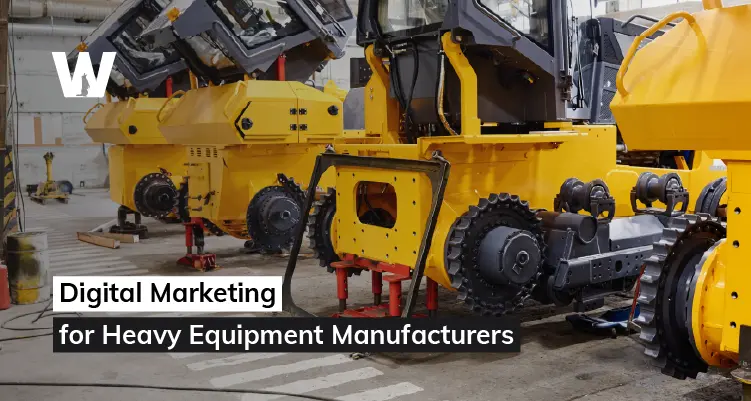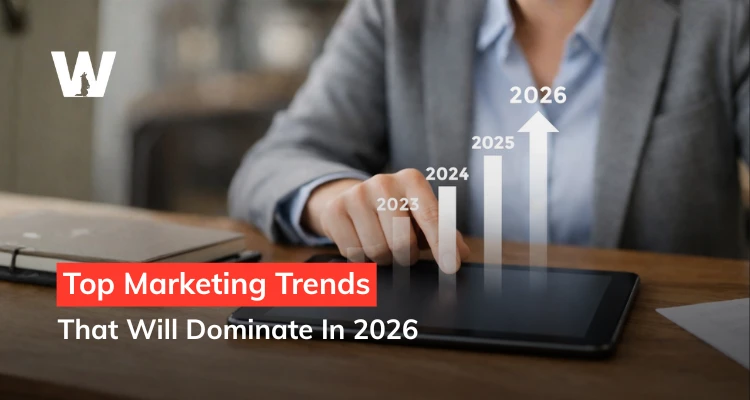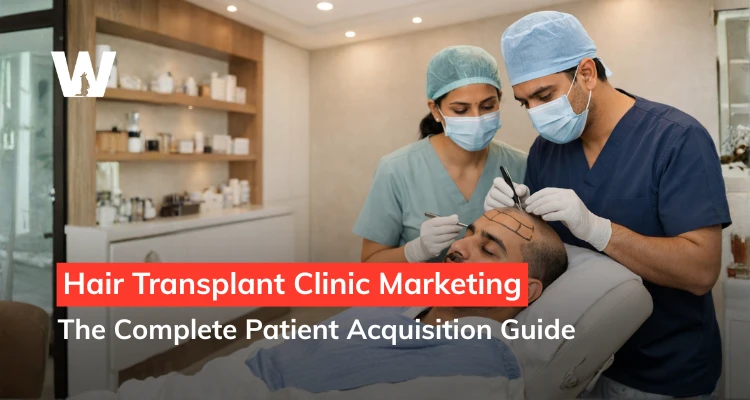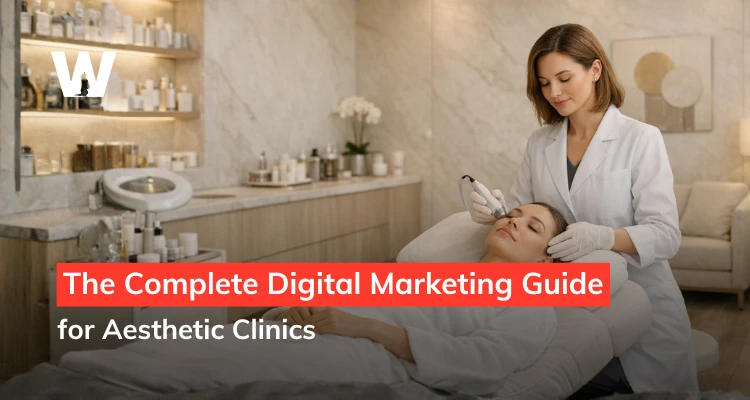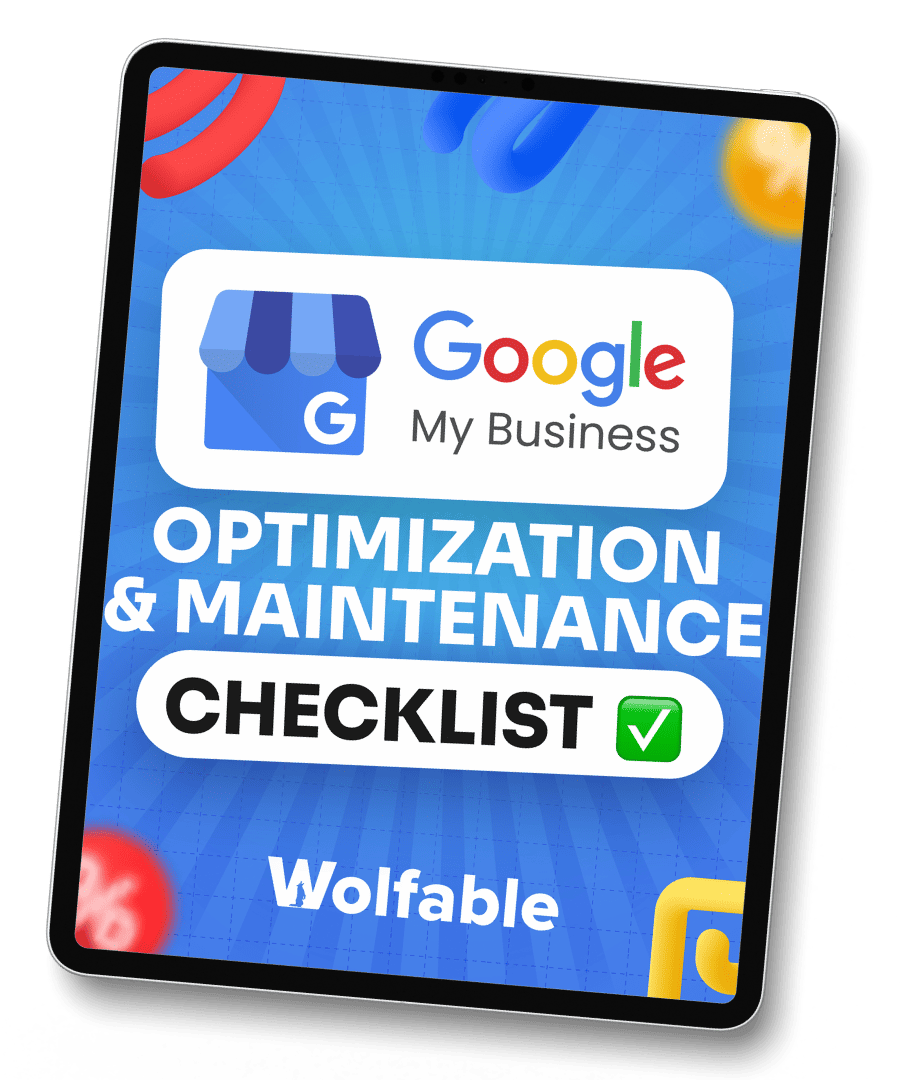Wraps up in 7 Minutes
Digital marketing is no longer an option for heavy equipment manufacturers; it's the primary engine for generating high-quality leads, building global brand credibility, and driving measurable growth. While the industry has long relied on handshakes at trade shows and glossy brochures, today’s B2B buyer is digital-first. They conduct extensive online research before ever speaking to a sales representative.
This guide is your blueprint for navigating this shift. At Wolfable, we specialize in crafting digital strategies for complex B2B industries, and we've seen firsthand how a well-executed plan can transform a traditional business into a modern powerhouse. We'll walk you through the exact strategies needed to attract, engage, and convert customers in the heavy equipment sector.
Why Is Traditional Marketing No Longer Enough?
The foundation of any effective strategy is understanding the 'why.' For heavy machinery companies, the B2B buying landscape has fundamentally changed. Relying solely on old-school tactics means leaving significant opportunities on the table and falling behind more agile competitors.
How Has the B2B Buyer Changed?
Today's B2B buyer, from project managers to procurement heads, is digitally empowered. Before they even consider making contact, they are online, researching specifications, comparing models, reading case studies, and watching your equipment in action on video. They expect instant access to information and a seamless digital experience.
This shift means your online presence isn't just a support function; it's the first—and most critical—touchpoint in the sales cycle. If they can't find you or if your digital showroom is unconvincing, you've lost a potential lead before the conversation has even begun.
What Are the Limits of Old-School Tactics?
Traditional marketing channels still have a place, but their limitations in a digital world are stark. Trade shows, while valuable for networking, come with a high cost-per-lead and limited reach. Print advertising in trade magazines suffers from declining readership and offers almost no way to measure direct return on investment (ROI).
Digital marketing, in contrast, offers global reach with surgical precision. It allows you to target a specific fleet manager in a specific industry in another country, all while tracking every dollar spent and every lead generated. This shift from a "shotgun" to a "sniper" approach is the core of modern B2B marketing for heavy machinery.
What Are the Best Heavy Equipment Marketing Strategies?
A successful digital transformation requires a multi-faceted approach. These are the core pillars of digital marketing for heavy equipment manufacturers that deliver consistent, high-quality results.
1. How Can Your Website Become a 24/7 Digital Showroom?
Your website must transform from a static online brochure into your most powerful sales and lead-generation tool. It's your digital showroom, open 24/7 to prospects worldwide. To be effective, it must be engineered for trust, information, and action.
An effective machinery website design includes:
- High-Quality Visuals: Professional photos are good, but high-definition videos of your equipment in action are essential. Show, don't just tell.
- Detailed Product Pages: Provide easily accessible and downloadable PDF spec sheets, performance data, applications, and available attachments.
- Clear Calls-to-Action (CTAs): Guide your visitors. Prominent buttons like "Request a Quote," "Find a Dealer," "Download Case Study," or "Schedule a Virtual Demo" are non-negotiable.
- Trust Signals: Feature customer testimonials, detailed case studies, industry certifications, and logos of well-known clients to build immediate credibility.
- Mobile-First Design: A project manager on a job site will be viewing your site on a phone or tablet. The experience must be flawless.
At Wolfable, our web design and development team focuses on creating websites that are not only visually impressive but are built as powerful lead-generation machines for industrial companies.
2. Why Is Content Marketing Crucial for Building Trust?
In a high-consideration industry like heavy equipment, trust is everything. Content marketing for equipment manufacturers is the process of building that trust by demonstrating your expertise and helping your customers solve their problems. It’s about becoming the go-to resource, not just another seller.
Actionable content ideas that build authority include:
- In-Depth Blog Posts: Write on topics your customers care about, like "5 Maintenance Tips to Extend Excavator Undercarriage Life" or "Choosing the Right Compaction Equipment for Your Soil Type."
- Gated Resources (Lead Magnets): Create comprehensive whitepapers, ultimate guides, or ROI calculators (e.g., "The Total Cost of Ownership Calculator for Wheel Loaders"). Require an email address for download to capture leads.
- Case Studies: This is your most powerful content. Detail how a specific customer used your equipment to increase efficiency, reduce downtime, or win a project. Use real data and testimonials.
- Video Marketing: Beyond product demos, create video marketing content like operator training tutorials, customer success stories, and brand films that showcase your company's values and engineering prowess.
3. How Does SEO Get You Found by Ready-to-Buy Customers?
Search Engine Optimization (SEO) for heavy equipment companies ensures you appear on Google when potential customers are actively looking for your products or solutions. Without a strong SEO strategy, your digital showroom is effectively invisible. The key is to target the right keywords.
Your customers aren't just searching for "excavator." They are using long, specific phrases that signal high purchase intent.
| Broad, Low-Intent Keywords | Specific, High-Intent Keywords (What you should target) |
|---|---|
| Bulldozer | Cost of a Komatsu D65 dozer |
| Construction Equipment | Heavy equipment financing options for small business |
| Excavator for Sale | 30-ton long-reach excavator rental near me |
| Heavy Equipment Dealers | Find a local Caterpillar dealer |
A robust industrial SEO strategy combines:
- On-Page SEO: Optimizing your product pages and articles around these high-intent keywords.
- Technical SEO: Ensuring your site is fast, secure, and easily crawled by Google.
- Local SEO: Critical for manufacturers with dealer networks. This ensures your local dealers appear in "near me" searches and on Google Maps.
Struggling to get found online?
4. How Can Paid Ads Drive Immediate, Targeted Leads?
While SEO is a long-term strategy, PPC advertising for heavy equipment sales (Performance Marketing) delivers immediate, highly targeted traffic. It's the fastest way to get in front of your ideal customer profile (ICP).
- LinkedIn Ads: This is the ultimate B2B advertising platform. You can target users by their exact job title (e.g., "Fleet Manager," "Construction Superintendent"), industry ("Mining & Metals," "Civil Engineering"), company size, and geographic location. It's perfect for promoting whitepapers and generating high-quality MQLs (Marketing Qualified Leads).
- Google Ads: Capture users with high commercial intent who are actively searching for your products. A well-run Google Ads campaign focused on the specific, long-tail keywords we discussed earlier can deliver quote requests and phone calls directly to your sales team.
- Remarketing: This is a crucial tactic. It allows you to show targeted ads across the web to users who have already visited your website, keeping your brand top-of-mind throughout their long decision-making process.
Ready to generate leads faster? Explore Wolfable's Performance Marketing services to see how we build data-driven campaigns that maximize your ROI.
5. How Can Email & Automation Nurture Leads Through a Long Sales Cycle?
A lead for a $500,000 piece of equipment won't convert overnight. The sales cycle can be 12-18 months or longer. Email marketing for heavy equipment dealers and manufacturers, powered by automation, is the engine that keeps leads warm and moves them through the funnel without manual effort.
Here’s how marketing automation for equipment suppliers works:
- A prospect downloads a whitepaper on "Choosing the Right Bulldozer."
- They automatically receive a welcome email with a link to the resource.
- One week later, an automated email sends them a case study featuring that same bulldozer.
- Two weeks later, they receive an invitation to a webinar on "Maximizing Earthmoving Efficiency."
- When they register for the webinar, your sales team gets an alert, signaling that this is now a hot, sales-qualified lead (SQL) ready for a personal call.
This strategic nurturing builds trust and positions you as the expert, so when they are finally ready to buy, your brand is their first choice. This is a core part of the AI & Automation Solutions we implement for clients at Wolfable.
How Do You Build a High-Performance Digital Marketing Machine?
Executing these strategies requires a plan and alignment. Simply launching tactics without a framework is a recipe for wasted budget and missed opportunities.
Where Do You Start? With Strategy, Not Tactics.
Before you spend a dollar on ads or write a single blog post, you must define your goals. What does success look like? Is it a 20% increase in qualified leads? A 15% reduction in cost-per-acquisition? Your entire strategy, from the content you create to the platforms you advertise on, should be reverse-engineered from these goals. A clear branding strategy for construction equipment companies is the first step.
Why Must Sales and Marketing Work Together?
The biggest point of failure in B2B marketing is a disconnect between sales and marketing. For this to work, both teams must be perfectly aligned—a concept often called "Smarketing." They need to agree on the exact definition of a "qualified lead" and use a shared CRM (Customer Relationship Management) platform to track the entire customer journey.
Marketing’s job is to generate and nurture leads. Sales’ job is to close them and provide feedback on lead quality. This closed loop ensures the marketing engine is constantly being refined and optimized based on real-world sales outcomes.
Engineering Your Success in the Digital Age
The shift to digital is undeniable. For heavy equipment manufacturers, this isn't a threat—it's the single greatest opportunity for growth in a generation. By building a strong digital showroom, becoming an expert voice through content, ensuring you're found via SEO, targeting prospects with precision ads, and nurturing them with automation, you create a resilient and predictable lead-generation machine.
This isn't about abandoning the relationships that built your business. It's about empowering them with the scale, data, and efficiency of modern digital marketing.
At Wolfable, we are more than a service provider; we are your strategic partner in this transformation. We combine industry knowledge with digital expertise to build customized marketing engines that deliver measurable results.
Ready to stop falling behind and start leading the charge? Schedule a Digital Strategy Consultation with our team and let's build your future, together.


